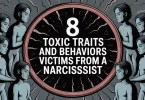Ever notice how being around a narcissist is like walking through a minefield? Just when you think you’re safe, boom – there’s a comment or action that feels perfectly designed to cut deep. Why is that? Why do narcissists always seem to go out of their way to hurt your feelings, even when there seems to be no reason for it?
Understanding why narcissists seem to thrive on emotional manipulation requires a bit of a deep dive into their minds. Spoiler alert: it’s rarely about you. Instead, it’s about their relentless need for control, validation, and power. So, let’s pull back the curtain on this perplexing behavior and explore the motivations, strategies, and psychological triggers that make narcissists so consistently adept at stirring up pain.
What’s Going On? The Narcissistic Need for Control
Narcissists aren’t just people with an inflated ego. Sure, they love to be the center of attention, but there’s much more at play. Narcissistic Personality Disorder (NPD) is a complex, deep-rooted condition driven by insecurity, control issues, and a desperate need for external validation. A narcissist’s drive to control others is what fuels much of their seemingly cruel behavior.
Why Control Equals Safety for Narcissists
In a narcissist’s world, control equals safety. Because they fear vulnerability and often have a distorted self-image, they depend on controlling others to create an environment where they feel powerful. For narcissists, hurting your feelings is one of the most effective ways to maintain that power.
- Control allows them to dictate the narrative.
- Dominance keeps them in a position of perceived superiority.
- Emotional manipulation is their go-to tactic to create a sense of unease.
Imagine this: you’re at a social gathering, and a narcissistic friend drops a subtle insult about your recent promotion. You feel hurt, confused, maybe even embarrassed. Mission accomplished – they’ve momentarily shaken your confidence. By doing so, they regain a sense of control. It’s a perverse cycle, but for a narcissist, it’s how they maintain a sense of stability.
Emotional Triggers and Mind Games: The Narcissist’s Arsenal
Now that we know control is a driving force, let’s explore the tactics narcissists use to keep you emotionally off-balance. Here’s a peek inside their playbook.
1. Gaslighting
Ever been told that you’re “too sensitive” or “remembering things wrong?” Narcissists are experts at making you doubt your reality. Gaslighting involves manipulating someone to question their perception, making them feel like they’re constantly in the wrong. Over time, it can erode self-confidence, making you more dependent on the narcissist’s approval.
2. Backhanded Compliments and “Jokes”
Narcissists love to mix praise with just a hint of insult and often mask their cruelty as “humor.” They might say, “Wow, you look good in that outfit!” or “You’re so dedicated to your job – maybe a bit too dedicated.” These statements leave you wondering if you’ve just been complimented or insulted. Spoiler: it’s always the latter.
3. Silent Treatment
Ah, the classic silent treatment – a favorite tool for keeping you anxious. When you reach out to them, and they don’t respond or suddenly withdraw communication, it leaves you questioning what went wrong. This creates a feeling of powerlessness and keeps you in a constant state of emotional limbo.
4. Triangulation
A narcissist loves using other people to create insecurity in you. They might compare you to an “ideal” person or bring up an ex or friend to make you feel jealous or insecure. This tactic keeps you competing for their attention and approval, which is exactly where they want you
Why Hurting Your Feelings Boosts Their Eg
If you’ve ever felt that a narcissist took pleasure in your discomfort, it’s probably because they did. Hurting your feelings boosts your self-esteem in a twisted way. This might seem unfathomable to most of us, but for a narcissist, it’s all about maintaining the illusion of superiority.
Emotional Sadism: When Pain Brings Pleasure
Narcissists can have a trait known as emotional sadism, where they derive pleasure from other people’s pain. For them, making you feel small or embarrassed provides an ego boost. This trait is especially common in people with more severe narcissistic or sociopathic tendencies.
The “Supply and Demand” of Emotional Reactions
A narcissist craves reactions – any reaction, really – because it feeds their sense of importance. Whether you’re angry, sad, or frustrated, your emotions validate their power over you. This is often referred to as “narcissistic supply,” a term psychologists use to describe the attention and validation a narcissist craves. So if you’re hurt, they’ve won. That reaction is precisely what they wanted.
Can They Control It? The Psychology of Narcissistic Impulse
Here’s the million-dollar question: do narcissists intentionally hurt your feelings, or are they simply incapable of empathy? The answer lies somewhere in between.
Empathy Deficit
One hallmark of narcissism is a profound lack of empathy. While they may understand on a cognitive level that their actions hurt others, they don’t feel the emotional consequences. This disconnect allows them to act without remorse, as they’re not burdened by the guilt or compassion that typically restrains others.
Impulse Control and Low Frustration Tolerance
Narcissists often have low impulse control and can’t tolerate frustration. If they feel threatened, jealous, or even mildly inconvenienced, their immediate impulse is to lash out. They don’t stop to consider the impact on others – they just want to relieve their discomfort.
- Example: A narcissistic boss may belittle an employee in front of others simply because they feel undermined.
- Example: A narcissistic partner might criticize you for something trivial when they’re stressed.
While these actions might seem calculated, they’re often driven by an impulsive need to regulate their emotions and maintain control.
Breaking Free: How to Protect Yourself from Narcissistic Abuse
You can’t change a narcissist’s behavior, but you can control how you respond to it. Here are some effective strategies for managing interactions with a narcissist.
1. Set Boundaries
Boundaries are essential when dealing with a narcissist. They’ll likely push back, but maintaining clear lines about what is and isn’t acceptable will protect your well-being. Keep communication direct and limit exposure to situations where you feel uncomfortable.
2. Don’t Take the Bait
Narcissists thrive on conflict, so avoid engaging in arguments. Respond with calm, neutral statements rather than letting them rile you up. Remember, they’re trying to elicit an emotional response.
3. Seek Support
Whether it’s friends, family, or a therapist, having a support system can help you cope with the emotional toll of dealing with a narcissist. Sharing your experiences can offer both perspective and relief.
4. Learn to Recognize Their Patterns
The more you understand the narcissist’s behavior, the easier it becomes to spot their tactics. Knowing what to expect can make avoiding falling into their traps easier.
The Bottom Line on Narcissistic Cruelty
Why do narcissists seem to enjoy hurting your feelings? It boils down to their need for control, their desire for validation, and a lack of empathy that lets them operate without remorse. While it can be tempting to take their behavior personally, it’s essential to remember that their cruelty says far more about their insecurities than it does about you.
Dealing with a narcissist is rarely easy, but understanding their motivations can empower you to navigate the relationship with resilience and self-respect. By setting boundaries and learning to detach from their emotional manipulation, you can protect yourself from their toxic behavior. So, the next time a narcissist tries to knock you down, remember: that you have the power to stand your ground.
Related Topics:
5 Mind-Blowing Psychological Facts About Quiet People
5 Sneaky Tactics Narcissists Use to Target Innocent Souls
Here Are Easy Steps To Get Revenge On A Narcissist
Top 10 Reasons Narcissists Cheat: Understanding the Psychology Behind Their Infidelity







Leave a Comment